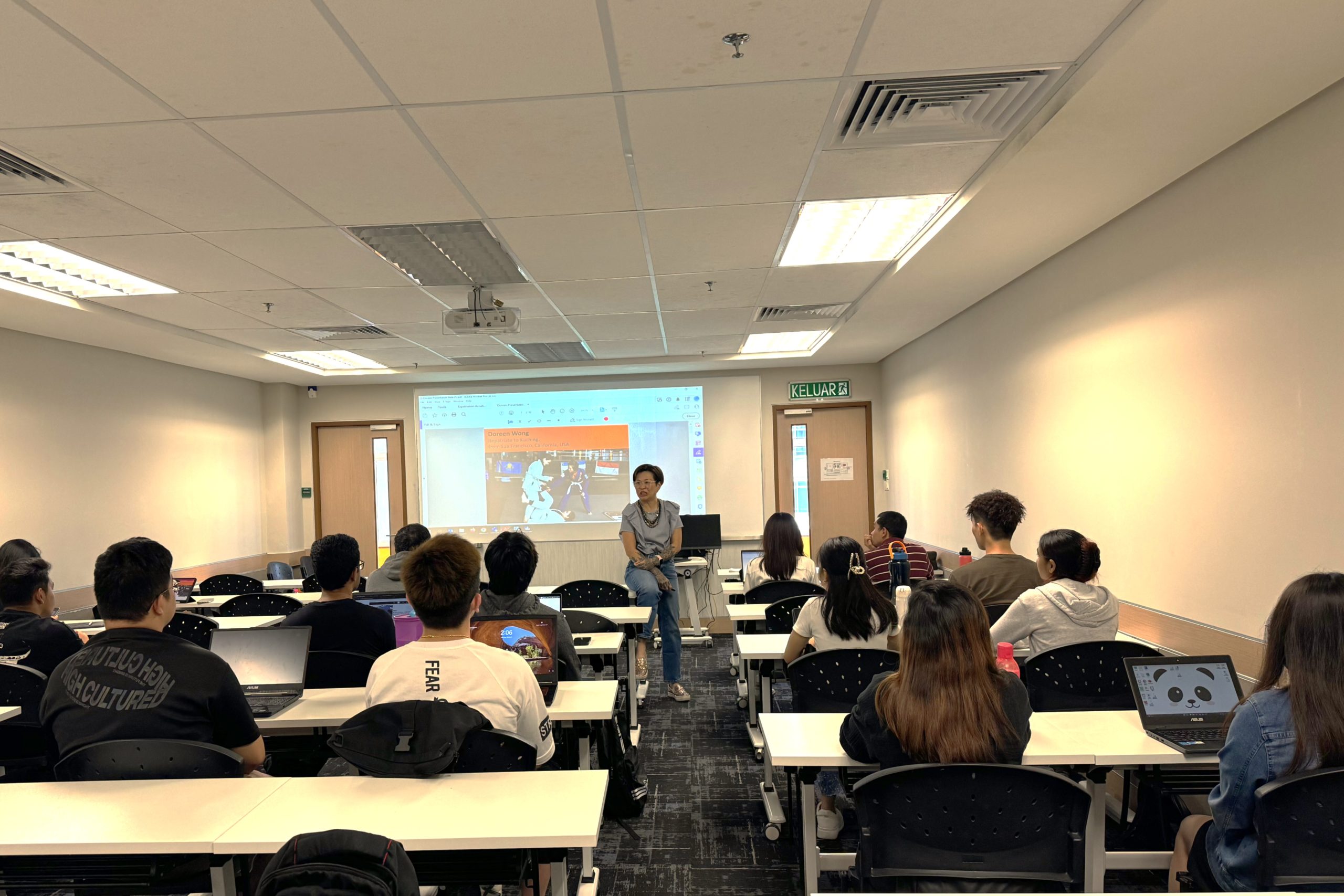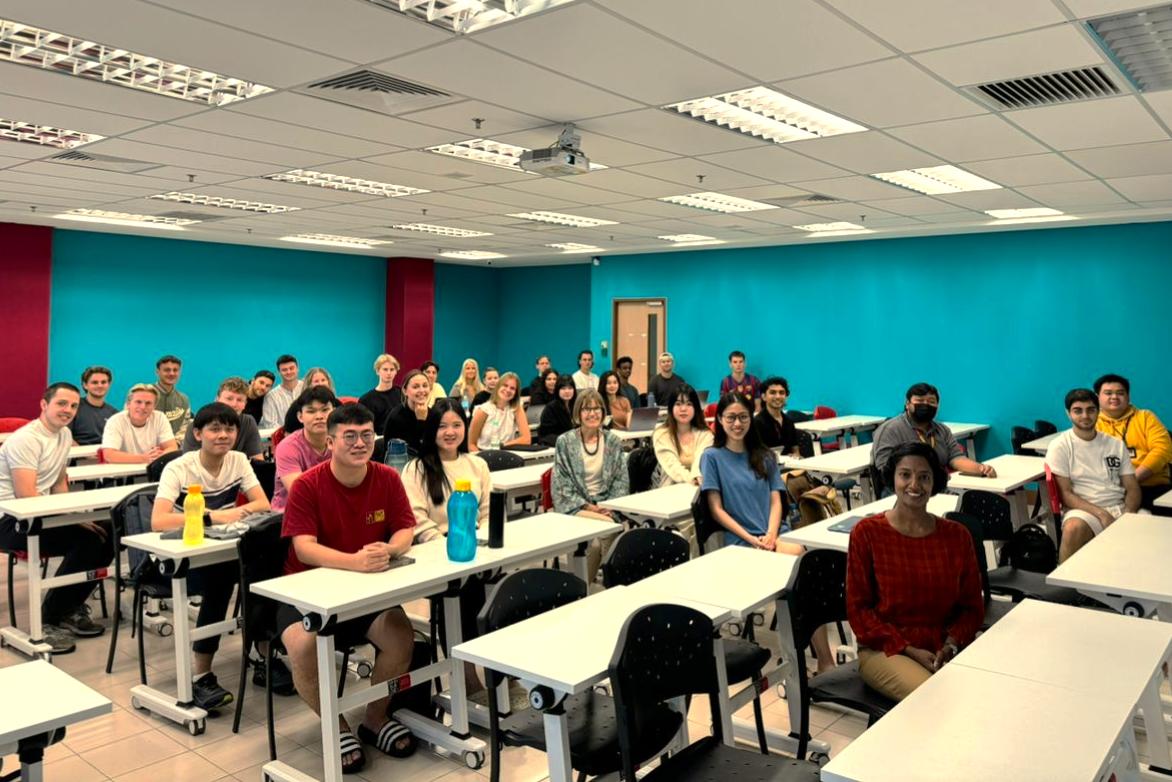The Global Business Across Cultures (INB30025 Global Business Across Cultures) unit helps students manage cultural complexities and build better relationships in the workplace.

Doreen Wong spent more than 25 years in the US, where the work environment is casual yet respectful.
At Swinburne University of Technology Sarawak Campus (Swinburne Sarawak), students in the Bachelor of Business (International Business), or BBus (IB) program benefit from the SwinSPINE initiative. SwinSPINE connects students with industry professionals. This helps students learn directly from industry experts, and gain insights into how global companies operate.
The goal is to help students shape their career goals, make valuable industry connections, and prepare for the world of work after graduation.
BBus (IB) focuses on teaching students both the theories behind international business and how to apply them in real-world situations. It encourages students to work in diverse teams, to understand different cultures, and to adapt to global business practices. The program includes 8 core units and 8 areas of focus, one of which is the understanding of global business and how the understanding of national, regional, and global culture influences how business operates (INB30025 Global Business Across Cultures).
As part of SPINE, two special sessions were organised where invited speakers shared their international work experiences.
Insights from International Industry Experts: Experiences in the U.S. and Japan
The first speaker, Mrs Doreen Wong, moved to the United States in the 1990s. Originally from Kuching, Doreen spent more than 25 years working in major American companies like Macy’s Starbucks, and Gap in San Francisco. She shared about the casual yet respectful work environment in these businesses and emphasized the importance of staying updated on industry trends and continuously networking for career growth.
Doreen also advises students to embrace the local culture in which they work, to focus on work-life balance, and to practice low power distance (where everyone is treated equally).
The second speaker, Dr Brenda Bushell, originally from Toronto, Canada, shared her experiences of living and working in Japan. Having spent 35 years in Japan, Brenda discussed the challenges of the Japanese language and the indirect communication style of Japan. In Japan, society often uses hints instead of being direct.

Japanese form of communication is indirect, and uses hints, said Dr Brenda Bushell (pictured centre, in green)
Brenda advised students interested in living and working in Japan, to learn the language and pay attention to non-verbal cues. These, according to her, are key to understanding Japanese communication. She also highlighted the importance of maintaining a good work-life balance, as Japan’s work culture can lead to work-life imbalances.
Connecting Theory to Practice: Cultural Models and real-World Applications
These sharing sessions tied in well with two important models used in the course: the Expatriation Acculturation Process Model and Hofstede’s Six Cultural Dimensions Model.
The Expatriation Acculturation Process Model explains how an individual will adjust to a new culture and work environment when relocating to a different country. It includes stages like preparing before departure, initial experience in the new country, challenges faced, and how the individual adjusts to the new culture.
Hofstede’s Six Cultural Dimensions Model explains cultural differences such as power distance, or how power is distributed in a society, individualism, and attitudes towards achievements.
Applying Theory to Practice: Navigating Cultural Complexities in Global Business
By combining these models with real-world insights, the sessions helped students understand how global businesses navigate cultural differences. Students also learned strategies for overcoming challenges when working in international environments.
The majority, of the feedback from the students was that these sharing helped them learn how the theories they studied help them navigate the intricacies of being expatriates in real-life situations.
The Global Business Across Cultures unit helps students manage cultural complexities and build better relationships in the workplace. Students are reminded that while adapting to a new country’s corporate culture may be challenging, there are always growth opportunities. Choosing a host country that matches one strength and professional goals also helps ease this transition.
The Bachelor of Business (International Business) program explores key factors like culture, politics, trade policies, and business customs that shape international companies. It is the perfect course for individuals interested in diplomacy, international travel, and solving cross-border business changeless.
Dr Komathi Wasudawan lectures in global business cultures and digital marketplaces among others, and is particularly interested in sustainable tourism. Dr Komathi is with the School of Business, Faculty of Business, Design & Arts.

